#not from Lucille
Text
“Daniel!!”
Daniel skipped down the damaged, uneven concrete steps two at a time, ducking under the balconies to avoid his mom locking on.
“I don’t want you hanging out with that no-good hoodlum!”
Daniel stopped in his tracks. Anger coursed through his veins, he tasted metallic. He’s bitten his tongue near enough in half.
He turned and pounded up the stairs, uncaring that his fingers splintered on the peeling paint of the handrail.
“Do you know how many of these Valley ass-hats have shouted hoodlum at me? How many have spat at me?” He knew he was coasting with the curse-word but right now getting grounded didn’t matter.
Lucille Larusso shocked Daniel. It wasn’t often his Ma could say something that truly shocked the “runt from Jersey” but today was apparently the day.
“How many of those fuckers gave you a black eye, huh Daniel?”
Daniel blinked. His Ma’s face was puce, specks of spit at the side of her thin mouth.
Daniel took in a shaky breath as his lips trembled.
His mother pulled him in close, breathing in the scent of his cheap drug-store shampoo. They’d ran out of conditioner and Daniel hadn’t been able to steal anymore yet.
“I’m so happy you’re dating Daniel, but why did it have to be him?”
That was a query he’d tried to solve. He’d even roped Johnny’s few brain cells into finding the answer.
They kept coming back to the same reasoning: Johnny couldn’t kiss him so he’d pummeled Daniel - a touch was still a touch.
“He’s apologised, Ma! He’s shown me every day he’s sorry. He’s never laid a hand on me since. He’s even stopped drinking!”
Lucille’s breath caught. Shit! Daniel hadn’t meant to disclose his boyfriend’s alcoholism. Well, can’t back out now.
“He’s been sober for five weeks, Ma. He’s trying. Even the days Sid is extra Sid he hasn’t had anything.”
Daniel was treading on thin ice. He was okay as long as -
“Had this Sid ever said anything to you?”
Daniel wanted to say No! Of course he hasn’t! But he couldn’t. Sid had said it to his face, shouted at his back and screamed it down the phone.
Daniel nodded, timid and suddenly so small.
Lucille’s grip tightened against his t-shirt.
“Has he hit you?”
Daniel shook his head no. Two karate trained teenagers versus his middle-ages indulgence. Apparently Sid was a prick but not a stupid prick.
“Has he hit Johnny?”
Daniel hesitated. Johnny had never told him outright but there was an edginess about him that he’d seen in his mom after Big Jerry moved in. Thankfully that was only for a few months before the guys from the deli downstairs came round to talk about the noise complaint. Daniel hadn’t seen Big Jerry in the hospital but he’d heard those six months in intensive care were tough. He had walked with a limp the last time Daniel saw him.
“Tell him that he’s always got a bed here.”
Daniel sobbed against her shoulder as her tears soaked her cleaning shirt - the pink one that was ripped in the back from the tree she’d had to rescue Daniel from when he was seven.
A motorbike’s engine revved outside their window.
Lucille sighed at Johnny’s admittedly hoodlum behaviour.
Daniel hiccoughed a laugh back.
Typical Jonny!
The thought gave him a swirly tug in his belly. His Johnny.
Lucile have a last stroke to Daniel’s hair as the rev’s intensified.
“Tell him he’s always got a bed here and if he revs that goddamn bike so loudly again he’ll be wearing it!”
Daniel nodded as he stepped back before leaving in to kiss her soft makeup free cheek.
“Thanks, Ma.”
Lucille wiped his tears away, yet again, and yet again because of Johnny.
Only this time it was kinda different.
Daniel silently asked the question and she silently replied - their eyes equally as expressive.
He grabbed his jacket and shades and retraced his steps outside. He heard his mom’s voice floating down to the street. He didn’t hear Johnnys reply.
Crouching to cut under Mr Garbazo’s window rather than walking all the way round Daniel came face-to-face with his smiling boyfriend. The blonde looked more relaxed than he’d ever been picking Daniel up.
“Hey baby.”
Johnny’s big blue eyes widened as he realised he’d said that in front of Lucille. Daniel laughed kindly.
“We’re from Jersey, Johnny. Ain’t nothing I ever heard before. You make sure he wears a helmet. You too!” She winked and Johnny turned as red as his jacket “And I don’t want you getting home any later than 11, ya hear me?”
Lucille was giving Daniel The Look that meant she was going to work and she didn’t want the neighbours complaining about that “loud-ass fucking motorcycle waking me up at 3am” again.
Daniel realised he’d forgotten his key.
“Daniel!!! Wait there.”
Daniel gave his boyfriend a quick peck on the lips as he fastened the helmet underneath Daniel’s chin. He wasn’t wearing one, as usual. He was cool but dumb!
“Catch!”
Lucille threw the disintegrating Mickey Mouse key ring underarm and Johnny caught it perfectly. He passed it back to Daniel who slid it into his front pocket.
“Have fun! Stay safe, the both of you!”
Johnny’s back straightened.
“Yes ma’am. I swear!”
Lucille and Johnny observed each other for a long moment.
Daniel nervously scratched the tip of his nose.
“I’ll leave the spare duvet on the settee. As an option.”
Johnny looked at Daniel over his shoulder, a myriad of emotions chasing them across his perfect porcelain features. He looked like a doll at times.
Daniel blushed as he fumbled for words.
Johnny shook his head, his eyes misty with unused emotions.
“Thank you.” He turned his face back up to the woman above, imposing wasn’t generally a word you associated with Lucille but was perfect for this moment. “You too, Mrs Larusso.”
Daniel and his Ma locked eyes before both laughing good-naturedly.
“Ain’t Mrs Larusso your Ma’s Ma?”
Lucile’s face was just as cheeky.
“Nah, I think it was her Ma’s Ma!”
Johnny looked between them.
“This is Johnny. Johnny, this is Lucille. Never Lucy and DEFINITELY not Mrs Larusso!”
Johnny looked relieved.
“ I’ll have him back at a decent hour, Lucille. Have a good night at work.”
With that Daniel and Johnny slowly pulled away from the complex and made their way into the late afternoon traffic, the sun at their back as they made their way to nowhere in particular, stopping off for burgers and shakes on the way.
“Charming hoodlum” ricocheted off the crumbling once-white walls of their apartments block.
Later on the beach Daniel explained what it meant as he snuggled further under Johnny’s red jacket, their eyes looking out to the universe as the traced lazy shapes against each others naked body. Safe and together.


#karate kid#Johnny lawrence#dnaiel Larusso#lucille Larusso#lawrusso#teenagers in love#Sid Weinberg#homophobia#not from Lucille#bully to friend to lover#johnny lawrence is trying#lucille is a legend#Ralphy Macchio#Ralph Macchio#Billy Zabka#William Zabka
32 notes
·
View notes
Text
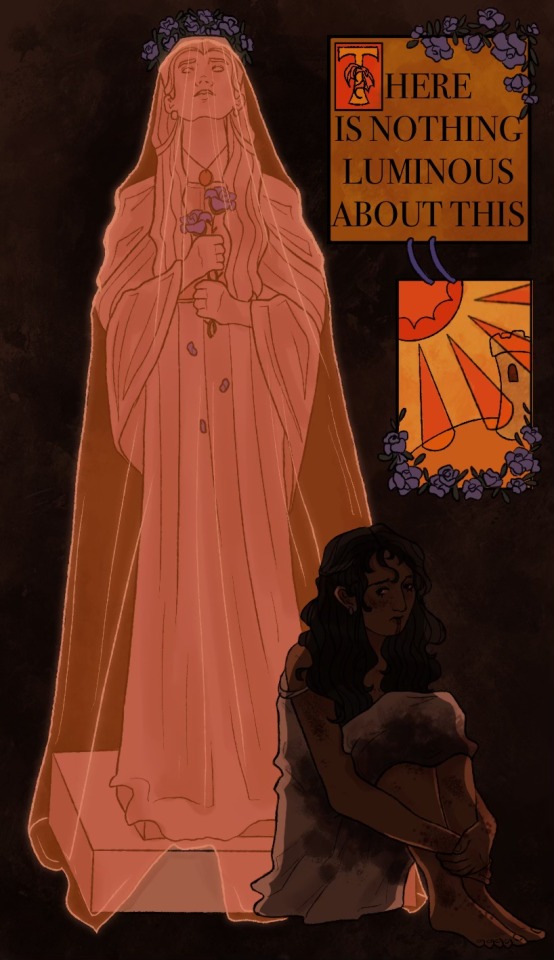
leda 1, 2, 3
#quote is from lucille clifton’s leda 1!!#got super sad ab her so. um.#asoiaf#a song of ice and fire#valyrianscrolls#asoiaf art#asoiaf fanart#lyanna stark#lucille clifton#tower of joy#starks#house stark#roberts rebellion
2K notes
·
View notes
Text
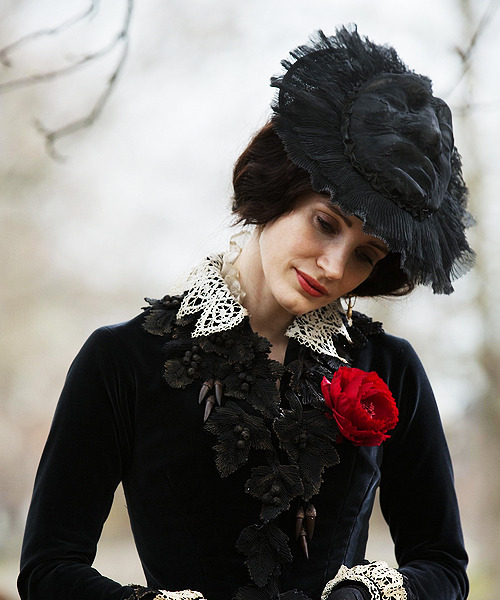
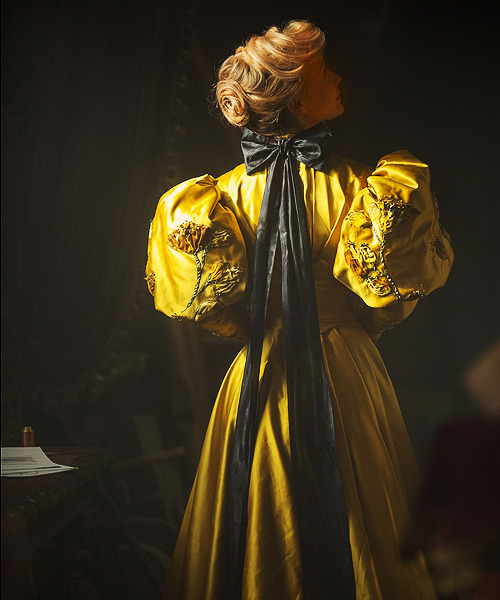
Lucille Sharpe and Edith Cushing in Crimson Peak (2015)
#crimsonpeakedit#crimson peak#edith x lucille#lucille sharpe#edith cushing#mine#being in love with the stills from this movie is something that can be so valid
583 notes
·
View notes
Text
Rewatching Crimson Peak & Things of Focus and Notice:
As a child at her mothers funeral, Edith wears butterfly/moth earrings
Is the pen her father gifts her the one she later uses to stab Lucille? He describes the importance of having “The right tool for the job,” is that foreshadowing for gifting her the tool to begin her escape from Crimson Peak?
Is Edith wearing a butterfly hair clip when she dances the waltz with Thomas?
Lucille’s iconic crimson red gown is so detailed, so beautiful. It represents the skeletal ghosts with its spinal column along the back, crimson peak itself in color, the carapace of a bug on the sleeves and structure, and the upper bodice has trim that blooms outward (present similarly in her blue gown) but is bisected by buttons…creating a familiar shape…a moth?
The candle they hold during the waltz is held at the same level Edith holds her iconic candelabra, a subtle parallel
The trim on the collar of Lucille’s black dress references the spikes and trims of gothic architecture - which is very heavily featured in Allerdale Hall
Lucille says that: “At home we only have Black moths, formidable creatures but they lack beauty.” Knowing the parallel between her and moths, it implies that she sees herself as a survivor and powerful, but something no longer beautiful because of it
Lucille places the butterfly she holds directly into the ants, an action that’s brutal but quick. Is it foreshadowing to her execution of Edith’s death? Something quick for such a beautiful thing, done by her hand?
The LOOK Lucille gives Thomas when they realize Edith’s father knows their past. THE LOOK (JESSICA CHASTAIN YOUR ACTING)
“You seem the more collected one my dear” Lucille is called this. She always holds the mission undetered in her mind, as opposed to Thomas who seems more easily swayed by emotions
When Thomas breaks Edith’s heart by ripping apart her book. He says: “What do you dream of? A kind man? A pure soul to be redeemed? A wounded bird to be nourished?” He is telling her exactly what he is. None of those things, none of the dreams she has built of him in her mind. Not with a past and life such as his.
The significance of gramophones and wax cylinders: it is what plays when Edith’s father is murdered, it is also what saves her from meeting the same fate
I want to know more about Lucille!! Her character is so rich, so so complex, she needs more screen time!!
Need a prop replica of the ring NOW
[the house] “is a privilege we were born into, one we can never relinquish” METAPHOR ALERT METAPHOR ALERT metaphor for the cycles of abuse and trauma they could not break
HOW THE FRICK did I MISS the fact that Thomas’ workshop is in the attic when that was where him and Lucille were locked up as children. SO MANY IMPORTANT SCENES HAPPEN THERE. So many significant to their past we never see, so many ghosts not visible but are so real and present to have caused this
The trail of smoke like red essence that emanates from the ghosts as they walk, like they are still bleeding
Lucille’s hair looks black in darker lighting, but a dark brunette in others. It’s provides a black, dark shroud when she’s in America, and catches more light when she’s in Allerdale Hall
“I like to think she can see us from up there. I don’t want her to miss a single thing we do.” UM MA’AM
“…in time, everything will be right” LUCILLE QUEEN OF FINAL OMINOUS STATEMENTS IN SCENES
The amount I WISH to explore this set. To pry apart each detail and pick apart each piece, so much of it had to be handcrafted pieces for the movie or vintage pieces sourced for it. LET ME IN
THE LIGHTING MUAH
The ghost in the hallway has a rope dragging behind her…is this a gory detail, or an allusion to how she may have died (if not by poison)?
The ghost in Edith’s dream is pointing, though it is never shown to what. Is it to the exit, her warning to leave as all the other ghosts try to do?
The children’s laughter after the presumed scream of their mother’s ghost as she is stabbed, is it just for creepy effect, or did Lucille and Thomas actually laugh after they murdered her?
The scar on Lucille’s lip? Never noticed it before!
Not the first time I’ve noticed it, but the act of her clutching hot steaming food with her bare hands is chilling every single time
Were the bodies of Thomas’s wives left in the vats of clay? I don’t know HOW I didn’t make that connection before, originally i thought it was merely for creepy effect.
Many people villainize Lucille and try to make Thomas out to be solely a victim. But as stated in the wax cylinder, he was fueled by his desire to pay for and make his machine. Him and Lucille are both complacent in using their victims money for their own gain
We need to bring Chatelaine’s back into fashion. That is all.
The scrape of the spoon over the porcelain cup, it screeches and is a subtle way that shows Lucille act of caring has a harshness to it, an unpleasant sound resulting from an otherwise pleasant action: tending to Edith
Such an interesting camera choice to have the camera focus in a circular inwards and outwards
also also Lucille has a temple scar on her forehead?
The small amount of glee Lucille takes saying Edith “thought [she] was was a writer” as she throws the pages to her novel in the fire.
The absolute deadpan, matter-of-fact-ness Lucille has to Edith when she signs the papers “you have nothing to live for” & “mercy killings.” This is a familiar repeated cycle
“Sign your name! Sign your bloody name!” Bloody is not just for emphasis. Edith’s name is soon to be nothing but blood
Lucille’s night gown sleeves as she flies down the stairs in pursuit - like a moths wings fluttering towards its prey
Lucille and Edith fought each other with bare feet on the stone and in the snow
Lucille is the only one of the two who knows how to start Thomas’s machine, because she was the one who witnessed it working
It is only the stab wound on Thomas’ face that bleeds and smokes when he is a ghost, perhaps because it is the wound that bears his betrayal by Lucille, reminiscent of tears of his lingering pain
Edith now has a facial scar, gifted to her by Lucille, who bore ones of her own. It is a passage, a continuing of the cycle, but it is its finale. It is Edith’s souvenir from Lucille, who took her own souvenir (her hair) from the other like a prize
#a very exhaustive list from my most recent rewatch of one of MY FAVORITE MOVIES#crimson peak#many many thoughts#lucille sharpe#edith cushing#thomas sharpe#cissarambles
225 notes
·
View notes
Text

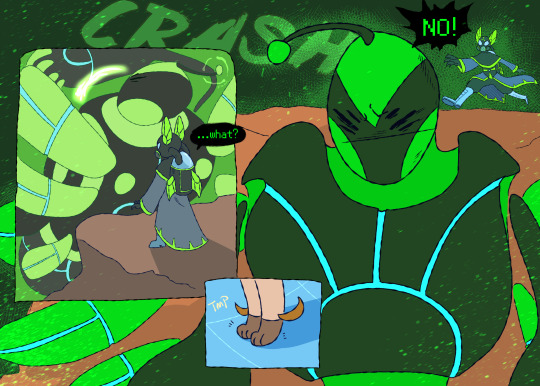
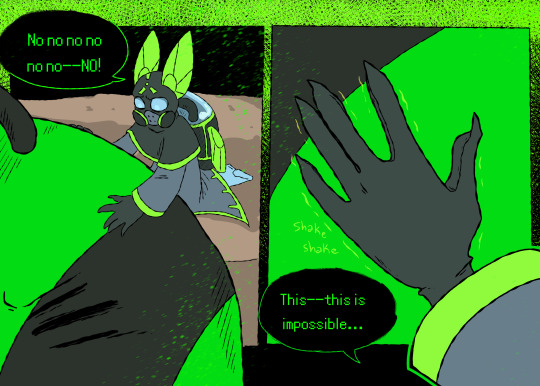
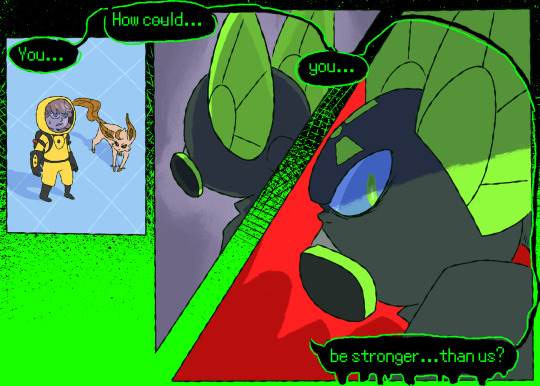
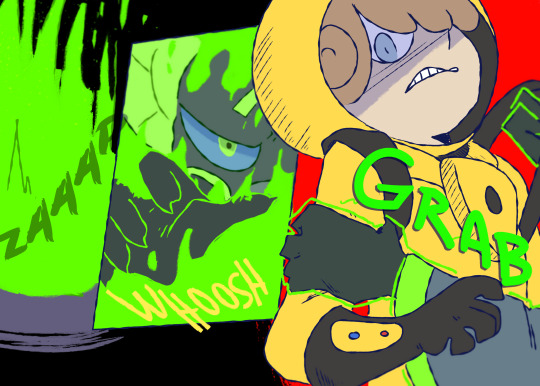
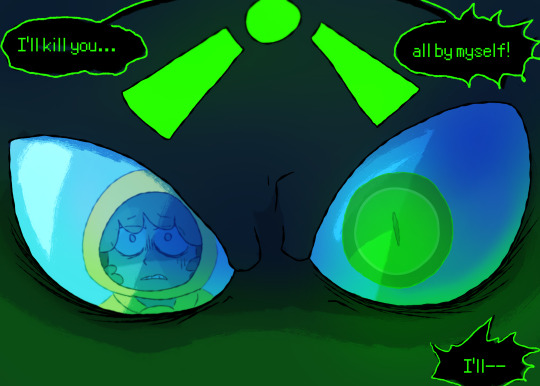
I love unhinged women
#pokemon uranium#leafeon#urayne#i love lucille but the protag goes from probably not having an opinion on their mom besides being the reason their dad left to being#that one person who tried to kill you multiple times - caused a few nuclear meltdowns - tried to kill your dad and your best friend#i NEEEDDD her to wake up i cant imagine how strained their relationship is going to be on top of CURIE absolutely hating your guts#anyway i only got 3 hours of sleep bc my brain wouldnt let me sleep until i finished this#i have 2 hours til work wish me luck in getting at least a wink of sleep#my art#pokemon uranium spoilers
137 notes
·
View notes
Text
So, you know, back in the 80s, George Sr. would get Gob and Michael to fight each other and record it, plus a Baby Buster short, to get in on the home video market.
Which made me think: if the timeline was shifted and the Bluth siblings were born in the 2000s, George Sr. would’ve run a particularly problematic family Youtube channel.

#the secondhand embarrassment I felt from these thumbnails…#how did this take me over 50 hours#oy gevalt#this was originally just gonna be#like#four thumbnails#one of each kid#but then it just…kept going from there#i’m really bad at doing simple things#that’s also a part of why I did a lineless artstyle for this#it was originally gonna be simple and blocky but then it turned out to be a lot more detailed sooo yeah#also credit to theflannelwizard for the first thumbnail concept#gob bluth#michael bluth#lindsay bluth#buster bluth#george bluth sr.#lucille bluth#arrested development#arrested development fanart#also why did the jonas brothers dress like that i love it
178 notes
·
View notes
Text
AoT Masterlist

Levi Ackerman x Reader:
; Selfish risks
// domestic fluff
In the peaceful downtime spent together, Levi decides to risk asking an important question.
; Everyone I’ve cared about has either died or left me. Except for you.
// Hurt/comfort, fluff
Based on the prompt from the title, you and Levi have a moment amidst the final battle.
; Year 850, then; Year 854, now
// Hurt/comfort, fluff
Two tender moments between you and Levi after being injured in battle, leaving him to worry and look after you in his own ways.
; I drag myself like a rug in the rain
// sickfic, fluff - Levi Ackerman x Reader
"If you can walk over to me with ease, then I'll believe you."
You are sick with the flu, yet refuse to admit it before a certain stern captain. He easily makes you swallow your pride.
; To the dark I said pour and forgot to say when
// angst, hurt/comfort
It's starting to become too much for you, training the recruits just to watch them die.
You take pride in your position within the scouts, but pride can't suffocate the growing guilt. How can you train them after losing so many? Luckily, Levi is there to help pull you together.
; The hour in-between
// fluff
Levi Ackerman, humanity’s strongest soldier and weakest sleeper. You’re not surprised to find him sneaking out of bed to be reunited with his paperwork, but you are touched that he still holds you in his arms until you have reached a deep slumber before he slips away.
Tonight you catch him returning to your side, determined to spend time with him before the world wakes.
; It's all for you, everything I do
// fluff
You and Levi spend some well-needed downtime together, sharing each other's company and relaxing with a hot bath.
; In my arms is where you ought to be
// hurt/comfort, eventual fluff
In the dead of night, the anxieties that you had tried to keep bottled up have finally crept up on you. Bringing along all the thoughts you had tried to lock away with it.
Luckily for you, you're not alone.
; Let me take care of you
// fluff and smut
It has been a few months since the war ended, and peace has brought a lot of change along with it. Physical and mental scars surround both of you, so you decide to show Levi just how much you love him.
; Home, love, family
// fluff
It has been some time since the fighting had ended, the world has started to move on and you find yourself doing the same.
You and Levi decide it is time to start taking the next step towards enjoying the future you fought for.

Levi Ackerman x OC:
; I'm suddenly standing at the beginning with you
// Fluff and Hurt/Comfort, longfic
#♥. lucille#♥. writing#figured it was time to separate the aot ones from the multi-fandom list now#levi ackerman x reader#levi x reader
81 notes
·
View notes
Text
do people get that Lucille's hobbies are considered perfectly ladylike and acceptable for women within her cultural context?
natural sciences, as long as they remained at the amateur level, were common interests for Victorian women. and lepidopterology? combining a "feminine" branch of the sciences with Pretty Animals? high on the approved list, even though it involved killing aforesaid Pretty Animals
music was all but expected of middle- and upper-class women, hence her performance at the McMichaels' ball. even her offscreen hobbies from the bios- writing never-to-be-published poetry and reading French literature -could come from a checklist of Appropriate 19th-Century Feminine PursuitsTM
Lucille is an EXTREMELY typical, even ideal Victorian lady on the surface, with the exception of wearing old clothes and being unmarried at age 36. and that contrast makes what lies beneath the surface all the more compelling
#crimson peak#lucille sharpe#'what a refined lady! she's writing a poem!'#the poem: 'roses are red/violets are blue/try to stop me from banging my brother/and I'll fucking end you'#incest mention#(no actually- the bios describe her writing poems about how her and Thomas' love was The Most Perfect Celestial Fated Thing Ever)
105 notes
·
View notes
Text
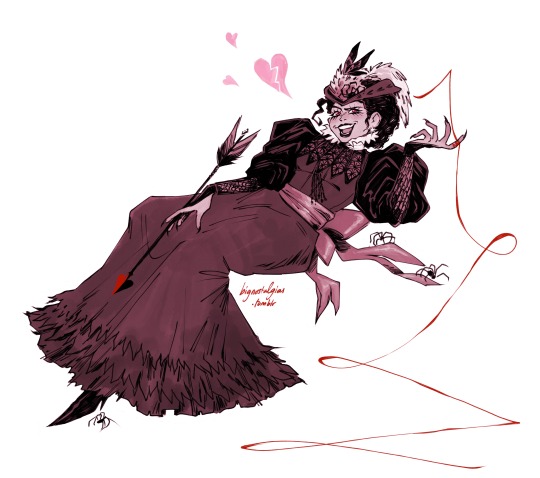

“No more sob stories.”
Happy Valentines!! This is a bit of a self indulgent doodle — baby’s first hijack fic when I was 13 was I’ll See It When I Believe It by OldBeginningNewEnding, and the original character of Cupid has lived in my brain ever since. She’s That Bitch ❤️🕷️🌹
#the amv that linked me to this fic no longer exists on YT but the editor used Lucille from A Monster In Paris for Cupid’s scenes djxbdsjsb#so I referenced her design while doodling#mine#fic: isiwibi#hijack#frostcup#I guess#I have a good handful of Cupid doodles from my Youth I adored her#I need that amv desperately. It was titled Rainbow#save me rainbow hijack amv. rainbow hijack amv save me
87 notes
·
View notes
Text
Personally, I think that the best podcast trope is old woman with a gun/flamethrower/military grade arsenal weapon/almighty celestial friends
#text post#the magnus archives#welcome to night vale#hello from the hallowoods#tma gertrude#zelda duckworth#Lucille bertuccelli#camp here and there#old woman josie
294 notes
·
View notes
Photo

“A woman with shadows for eyes—deep as the Darklake.”
#em: art#shadowheart#baldur's gate 3#I FINALLY DREW HER!!!#this was based on Lady Lucille Sharpe from Crimson Peak#a mix of study + fanart#bg3#fanart#larian studios
1K notes
·
View notes
Photo
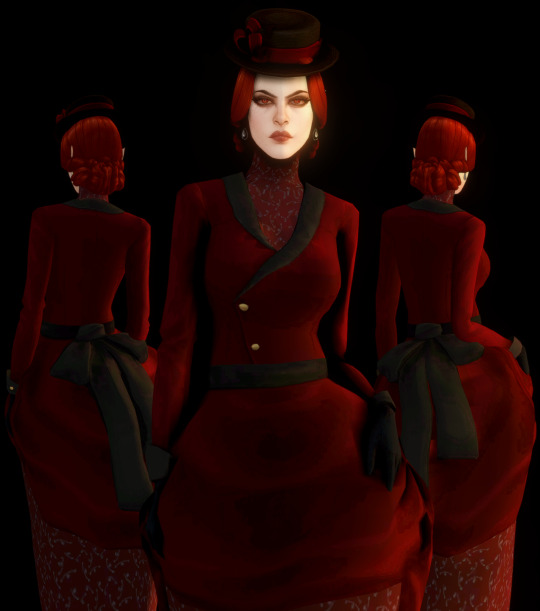


POV: you played AC syndicate and now everyone gotta be dressed up in vaguely victorian era clothing 😞😌
#ts4 cas#simblr#my sims#ts4 elvira slayer#yes its elvira slayer#and yes ima give her back her very short hair but its 1880 rn!!#Id like 2 think she owned an orphanage n preformed experiments on them by injecting vamp genes or#Feed off them like that vampire lady from the witcher did#shes more evil than miss hell 2 me#miss hell is kinda camp#more like a free spirit shes only evil in her selfishness i guess#BUT ELVIRAAA? Oh shes giving me lady lucille sharpe vibes#How many people did she killed in her pursuit of knowledge
195 notes
·
View notes
Text
Theo, when Lenore is telling him bird facts: Why is there nothing gayer than knowing bird facts? I feel like you may as well call up our mother and be like “Mom,-“
Lenore, laughing : “Mom.. gosh this is really hard for me to say.. but the the eastern bluebird is the state bird.” And- and she’d go “I KNEW YOU WERE EATING PUSSY-“ PFFT HA-
Theo, laughing, like a lunatic still: LANGUAGE LENORE- GOD!
#this was based off a stand-up comedy clip I saw once but I don’t remember where it was from. or who it was from So#nevermore webtoon#Lenore Vandernacth#theo Vandernacth#Lucille Vandernacth#incorrect nevermore quotes#incorrect quotes
144 notes
·
View notes
Photo

mwah!
#mason tpof#lucille hayes#the price of flesh#tpof oc#ocspit#spit art#bearsmaw#i miss them so bad actually#sighs wistfully#kissaroo from me to you#mason heiral
271 notes
·
View notes
Text






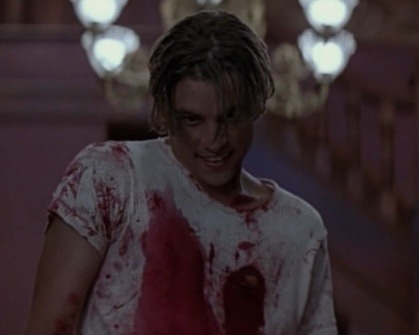


Psychopathy is a pathologic state characterized by a disharmony primarily in the emotional and volitional aspects of the personality in which the intellect remains relatively intact.
1. Sweeney Todd: The Demon Barber of Fleet Street (2007) Sweeney Todd Benjamin Barker
2. Secret Window (2004) Mort Rainey
3. Crimson Peak (2015) Lucille Sharpe
4. Hell Is Other People (2019) Seo Moon Jo
5. House of Wax (2005) Bo
6. Midnight (2021) Do Shik
7. Scream (1996) Billy Loomis
8. The Black Phone (2021) Albert Shaw
9. American Psycho (2000) Patrick Bateman
#horror movies#slashers#albert shaw#tbp fandom#the black phone#ethan hawke#horror#scott derrickson#crimson peak#lucille sharpe#del toro#billy loomis#scream#stephen king#johny depp#tim burton#sweeney todd#seo moon jo#hell is other people#strangers from hell#house of wax#house of wax bo#american psycho#patrick bateman#christian bale#lee dong wook#wi ha joon#jessica chastain#secret window#brian van holt
26 notes
·
View notes
Note
hebert had a wife and daughter?
Indeed he had!
Hébert’s wife’s name was Marie Marguerite Françoise Goupil. I haven’t found better information regarding her birth more than that it happened in Paris in ”the first days of 1756” (she was in other words one year older than her future husband). I also haven’t found out which of her three names was her first name, though all texts I’ve checked settle on Françoise, so I’m also going to call her that.
Françoise, according to Paris révolutionnaire: vieilles maisons, Vieux papiers (1903) was the only child of Jacques Goupil and his second wife Marie-Louise Morel. The former had been the owner of a not very successful lingerie business which his wife then took over after his death. When Marie-Louise died as well, on July 16 1781, she had for a while lived with and worked as a nurse for the abbot Vaudair, who it is possible her daughter then turned to when she a while later started working for religion. Françoise became a nun of the Couvent des Filles de la Conception on rue Saint-Honoré, the same convent where Élisabeth Duplay claimed she and her three sisters took their first communion.
In June 1790, municipal commissioners presented themselves at the convent to hear its inhabitants’ declaration on whether they would stay there or leave. Out of the 24 nuns, only Françoise responded that ”she could not make up her mind at the moment,” the other 23 declaring that ”faithful to their wishes, they wanted to live and die in their state as nuns.” A year later, July 1 1791, Françoise’s name no longer featured among the convent’s inhabitants, meaning she had left it, be that out of free will or her sisters kicking her out for what she had said the previous year.
Hébert’s fellow journalist Louis Marie Prudhomme claimed in his l’Histoire générale et impartiale des erreurs, des fautes et des crimes commis pendant la Révolution (1797) that it was while at La Société Fraternelle des Patriotes de l'un et l'autre sexe Françoise for the first time met her future husband. Their wedding was held in the parish of Saint-Gervais on February 7 1792 (see the image below). After the marriage, the couple settled on Rue Saint-Antoine.
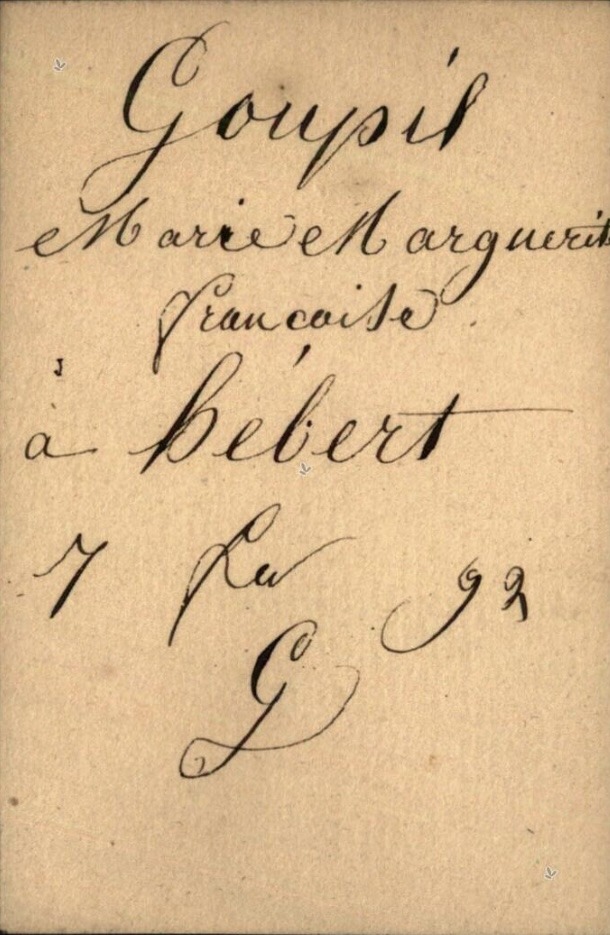
According to the same Prudhomme, Hébert was however not heads over heels in love with his wife:
[Hébert] married more to appear to have carried out an act of good citizenship than out of esteem and love for his wife. Nevertheless, they got along quite well, although she was ugly. It was a large spider that came out of the convent of the Assumption or the Annunciation. […] A wonderful revolutionary frenzy took hold of the couple, and they were faced with the people, who shouted bravo!
Hébert’s own letters would however appear to contradict this:
My situation, although difficult given the immensity of occupations with which I am responsible, becomes happier every day. I must inform you, my good friends, of the alliance that I am contracting with a very amiable young lady of excellent character. It would be enough of these advantages and were she devoid of all resources, the one I love would not be any less dear to me; but to fill my happiness I find enough fortune with my wife to be reassured about her fate if death separates us. I therefore ask you, my dear sister, to give me your approval and to ask the same from Boissierre. […] I am very assured that you will sympathize with my lovable pretender. She is very spiritual. Speaking in the old style I would say that she is comme il faut, but as I have been assured that you are as patriotic as me I only use constitutional expressions. This demoiselle is called Goupil: she has spent her entire life in the convent up until now. By her personal qualities and by the advantages she enjoys she could claim to someone much richer than me; but my good fortune gave me preference over several competitors. You see, my good friend, that not everything in life is bad and that fate has finally tired of persecuting me and through consistency I have been able to create a pleasant and lucrative position for myself.
Hébert in an undated letter to his sister, written somewhere in 1791
I am healthy and very happy. United with a woman who combines all the good qualities with the charms of the mind, whose education is completed, whose character is perfect, I lead the sweetest and most peaceful life.
Hébert in an undated letter to his sister, written somewhere in 1792
Réné Desgenettes, who in his memoirs claimed to have met Hébert in late 1791 (though it was most likely early 1792) also hints at a loving relationship:
After my return to Paris, by the end of 1791, I had met at la Grave, or rather under the Saint-Jean arch, my fellow patriot and almost fellow student Hébert, who showed me with satisfaction his feelings over seeing me again, how much he had often regretted that I had been absent from the capital during the first days of the revolution.
”You would have surely played an important role,” he told me, ”but now that you’re here everything is almost over. I live pretty close to this place, rue Saint-Antoine, opposite the passage of this name, which leads to rue du Roi des Deux-Siciles. My little apartment is on the third floor at the front. I have not at all forgotten your constant kindness or what I owe you. I want to speak of money so generously lent, because I would not dare to recall and could not count how much you often gave me at the traitors of the rue de la Parcheminerie, de Mâcon and de la Grille du Carrousel. Without you and the honest patriots from rue des Noyers, I would have starved to death… I can’t say, monsieur, which hours I will be at home, where I still dine everyday, and where I would consider myself both happy and honored to find you. But you will be sure to always find my wife there, because I’m married. Madame Hébert is a former nun from Conception-Saint-Honoré, young and very spiritual. Despite her burning patriotism, she has kept a lot of piety, and considering I love her so much, I never contradict her on this point, contenting myself with a few jokes.” I never answered to this invitation, nor did I find the occasion to see Hébert again after the end of 1791.
From the summer of 1792, we have two letters Françoise wrote to her husband’s sister, which they too seem to indicate a happy marriage:
To mademoiselle Hébert the older in Alençon
Paris, 24 July 92
We were firmly convinced, my husband and I, that you received the newspaper as well as Mr. Desnos. M. Hébert had taken all the necessary means for this; but we had the misfortune of associating ourselves with the biggest rascal in Paris, who deceives us in every way. It is therefore not surprising that you were deprived of the papers he was responsible for sending you. We are ready to leave him and you will receive what you want without fail, I hope. We would already be on top of our affairs without this man, hardly worthy of a partner as upright as my husband, who has been fooled ever since he started working; but whose well-known probity and frankness made an infinitely honest young man desire his association. So we will work through new charges and I hope that this time we will not be unsuccessful. If M. Hébert is good enough to make his happiness consist in having me, it is indeed me, mademoiselle, who without grace can certify that I am perfectly happy with he who never ceases to everyday give me new proofs of his tenderness. I have carried a precious token of him in my belly for three months now, he wants the child to look like me, and I want it to look like its father, this, mademoiselle, is the continual subject of our differences. We agree more willingly on the desire to have you as a witness of our love, it will not be up to us unless it happens soon. You are very worried about the dangers of the fatherland. They are imminent, we cannot hide them: we are betrayed by the court, by the leaders of the armies, by a large part of the members of the assembly; many people despair; but I am far from doing so, the people are the only ones who made the revolution. It alone will support her because it alone is worthy of it. There are still incorruptible members in the assembly, who will not fear to tell it that its salvation is in their hands, then the people, so great, will still be so in their just revenge, the longer they delay in striking the more it learns to know its enemies and their number, the more, according to me, its blows will only strike with certainty and only fall on the guilty, do not be worried about the fate of my worthy husband. He and I would be sorry if the people were enslaved to survive the liberty of their fatherland, I would be inconsolable if the child I am carrying only saw the light of day with the eyes of a slave, then I would prefer to see it perish with me. I gave Mde Pelletier the papers for you that I haven't through up much since M. Desnos left.
I have the most ardent desire to see you.
Mademoiselle and dear sister
Your very humble servant
Goupil… Hébert
My husband tenderly embraces you as well as your sister, whom I beg you to accept the assurance of my very sincere feelings.
To Mademoiselle Hébert the older.
Rue de la Mairie, Alençon, département de l'Orne.
Mademoiselle and dear sister-in-law,
I don't know what to attribute your long silence since last time I had the pleasure of writing to you; but it surprises and distresses me, I would have already complained if my since five months back very bad health would have left me that possibility. My husband, who was chosen by his section to serve as city commissioner on the night between August 9 and 10, has run the greatest of risks. He had the pleasure of rendering services to his fatherland, and always with that noble disinterestedness that you know from him. He has done and still does good without respite, he has seen and still sees intrigue rise up, and modestly remains Père Duchesne, a poor newspaper seller. He stood for election and was undoubtedly well worthy of becoming a member of the Convention; but he believed he had to hide nothing of the truth, more than once he made the intriguer who enjoyed a great reputation turn pale, he seemed too pure and too formidable to those who had influence in the nominations, and to the great astonishment of the brave sans-culottes, he himself is still a brave sans-culotte, which is enough for my happiness. Satisfied to know my husband was worthy and capable of doing anything to be satisfied, his hands remained pure like his soul and were not soaked in the blood that flowed in the prisons. For my part, I suffered from such a great horror that I almost lost my life; I believe that the law alone can strike down the guilty, and until then I will cover them with my body. All that can console me in this tragic event is that the names of those who are its authors are already in execration and that history by transmitting them to posterity will justify the people of Paris who has lost nothing (it must be said) of its urbanity. You would oblige me infinitely if you could tell me if the former Viscount the huntsman Lord of Carrouge has emigrated. I suspect that he has and if I was certain of it I would put an opposition against his property as he owes le 600 livres. My husband, who loves you very tenderly, says a thousand tender things to you and to your sister, and I ask you to believe me, both of you, with a very sincere attachment.
Mademoiselle and dear sister-in-law .
Your very humble, .
Servant G... HÉBERT.
My address from now on will be:
Cour des Miracles rue de Bourbon Ville Neuve.
A few months later, Réné Desgenettes claimed to have run into Hébert and been invited to dinner yet again, and this time he did follow through with it, resulting in this very long anecdote:
On February 24 1793, I spotted him, on rue Saint-Honoré, part of the procession bringing the remains of Pelletier de St-Fargeau to the Panthéon. […] Hébert, who had noticed me as well, dispatched himself from the group, approached me, shook my hand roughly and said: ”Where in the devil’s name do you live?”
”Rue du Paradis au Marais, n. 3.”
”I have important things to tell you and still live on rue St-Antoine.”
I still refrained from visiting Hébert. However, after a very few days, I learned that a gentleman of fairly good appearance, well dressed and calling himself substitute deputy of the Commune, had come to ask for me, and that he seemed upset for not having met me. Thinking there was no way to back down, the next day, around five o’clock, I went home to Hébert, where I found his wife, the former sister Goupille [sic], who, while waiting for her husband, occupied herself with preparing a rather delicate dinner, because the orator loved good food. Madame Hébert received me very well and told me her husband so many times had spoken of me with affection, that we were two old acquaintances. I approached to contemplate an engraving based on the beautiful painting by Titian or Paul Veronese, showing Jesus Christ with two of his disciples at Emmaüs’, when I noticed that Hébert below it had written: the sans-culotte Jesus dining with two of his disciples in the castle of a ci-devant…
”Here you see,” Madame Hébert told me, ”one of these bad jokes my husband often allows himself to make against religion, as a result of a detestable habit I have no hopes of curling him from... I am, monsieur, very much attached to Christianity… It’s our religion at its most beautiful, because I don’t subscribe to everything… I preach to the Jacobins, in the society of our sisters, the same doctrine that abbot Fauchet preach to our brothers at their reunions. He is a great and true apostle who inspired me with a perception of the enthusiasm which animates him, and I have reason to believe that he is also not dissatisfied with the zeal with which I seek to imitate him. I know all the advantages that the Bishop of Calvados has for me; he owes them to nature and to his superior talents, because he is a very handsome man, and everyone agrees that he is also very eloquent.”
Hébert arrived at six o’clock. Before sitting down at the table, where we then stayed for three hours, he took from a secretary a certain number of gold francs, which he handed over to me like an old debt with a thousand thanks. […]
Let us [said Hébert] speak a bit about Alençon and the first time of our youth. Madame Hébert will see that I have hidden nothing from her about the time of my life when it has been claimed that I was a scoundrel. You surely remember, monsieur, that upon leaving college, where I quite simply had the well-deserved reputation of being lazy and mischievous, I had the misfortune, or perhaps the good fortune, to fall out with la justice?
R.D.G: I remember it well.
Madame Hébert: But that is always very grave.
Hébert: This was also very grave, because the bailiwick of Alençon condemned me to banishment; but I appealed to the parliament of Rouen, which did not confirm the sentence of the first judges.
Madame Hébert: I’ve only ever known of this in a rough and very imperfect way.
Hébert: Well, you will know, my good friend, that in the town where monsieur and I were born, women have always had a great reputation for gallantry. Now the widow of an apothecary, who had been accused of bigamy, had in turn many lovers. In the front line there was a doctor who was very handsome, and after him, living under the same roof as the lady, was her premier garçon, as they expressed it then, and then finally the man who managed the very busy pharmacy. A rivalry which existed secretly between the doctor and the pharmasist broke out one day with so much fury that the doctor murdered his rival...
Madame Hébert: The horror! How did he kill him?
Hébert: The doctor took an iron or copper pestle, and delivered several strong blows to the head and across the face of my poor friend L..., who was on the point of being trepanned. However, even before public rumor got around, the king's prosecutor was seized as suspect in this criminal matter, it was dormant or rather stifled by a transaction which was attributed throughout the city to the conciliatory spirit of M. Desgenettes, your respectable father. Doctor Cl.... however, had aggravated his crime, because he was closely pursued, it is true, sword in hand, by the brother of L..., employed on the farms, he had tried twice to kill him. Outraged with rage upon learning that just revenge was going to elude the L... brothers and their friends, I drew up a note which was posted at the doors of the main church, the commissary, the courts and other places.
Madame Hébert: What did it say on the note?
Hébert: It said: ”Sentence rendered to the Supreme Court of Honor which condemns Doctor Cl... to the pillory of infamy, for compensation, etc. Then I drew two bloody knives in a saltire, with this motto: Olim veneno, nunc cultro.”
Madame Hébert: Which means?
Hébert: Formerly with the poison, now with the knife.
Madame Hébert: Is that right, M. Desgenettes?
R.D.G: Yes, madame, and if you want a different version: ”He has replaced the knife with the poison.” Nevertheless I must have the honor of observing to you, as your husbands already knows, that the doctor did not use the knife.
Hébert: The knife made Cl... more odious, and that's what I intended. The assassination is therefore tolerated by a court which had just hanged two unfortunate people, for having burglarily stolen forty sous from a church trunk, which I would happily call provocative, since it jutted out onto a main road. The veil of oblivion is extended over a crime that was to be punished by the torture of the wheel, and here I am, for a placard which repaired the wrongs of justice, extraordinarily prosecuted, and decreed for personal adjournment . This is not yet enough, and both God and the devil are invoked against me.
Madame Hébert: You are aware, my friend, that all justice emanates from God; but the possible intervention of the devil in a judgment rendered by men is a superstition that I reject, although you have sometimes regarded me as superstitious. Monsieur, she said, addressing the author of these Memoirs, I am not superstitious, but no one is more penetrated than me by the power of God and the ineffable benefits of the religion of Jesus Christ... Is it not the Savior who said to men: You are the children of the free woman? I have never blushed over my [connection to] the first estate, and admit it in front of everyone. I still keep, and you have it before your eyes, the bed that I had at the Assomption; when it becomes that of a mother, it will change in neither shape nor color... My principles are still the same as those of Sister Goupile [sic]. But, tell me, Hébert, please, how was Satan brought into your business?
Hébert: Because it was brought before the official of Seez, and the general vicar and canon of the cathedral, who presides over this ecclesiastical tribunal, launched a monitory against me. This act fulminated in the sermon in the parish church of Notre-Dame d'Alençon, with an apparatus and ceremonies borrowed from the inquisition, which filled the common people with terror, and part of the population barricaded themselves in their homes, at the the onset of night, while the proud men of the city, and especially the armed butchers, searched everywhere for the werewolf. You know, monsieur, that they are a brutal and even ferocious type of man. The fanaticism of butchers has long been maintained in our city, by making them appear with their cleavers and their dogs in the procession of the little Corpus Christi, in memory of the assistance they had given, in 1500, to the Catholics against the Calvinists, then very numerous and very powerful in our country. Do you remember, monsieur, seeing this ceremony?
R.D.G: Yes, monsieur, and to have seen at the head of the butchers, with his sword raised and his arm bare, a Malêfre. This gentleman who, I believe, lived in Seez and had a stronghold at the gates of Alençon, was descended from the one who first commanded the butchers in this ceremony. The dogs had been removed, because they bit those of the assistants who stepped on their feet, and because they howled in a terrible manner when the culverines of the castle came to shoot to salute the Blessed Sacrament.
Hébert: If the butchers, who were pleased by my known cheerfulness, had suspected me of being the author of the placard, I would have been very uncomfortable, and if they had been convinced of it, I would perhaps have been treated like the werewolf that they wanted to skin like a calf... Barricaded at the house of my poor mother, who borrowed books for me from all directions, I acquired this profound knowledge of history that deigned to grant me. My misfortunes in Alençon, repaired a little in Rouen, led me to Paris, and you know, very roughly, what the rest of my life was like.
Madame Hébert: It was during your debut in Paris, my dear friend, that you were the most silent…
Hébert: However, I had no reason to keep silent about the fact that for a long time I had struggled with the devil by the tail, even up to the time when I obtained a small job as a tobacconist at the Théâtre des Variétés. Yes, I suffered from hunger, thirst and cold for a long time. You are not unaware of the services rendered to me by Monsieur; I also had many obligations to the Parisot hairdresser on rue des Noyers, as well as to his wife. This graceful couple reminded us of the wigmaker, the Love of the Lutrin, and his wigmaker... We still had charming neighbors, the two daughters of the butcher across the street from Saint-Jean-de-Beauvais... Then, close to that of the English, this woman who loved you so much...
Madame Hébert: Is it so, monsieur, that you also have a good friend (girlfriend) in the quarter?
R.D.G: No, madame, but I often chat with a rather laughable old woman, who ran a tobacco shop and housed two or three students. The house, which was no more than fifteen feet wide, as deep, and yet five stories high, had belonged to the father of J.-B. Rousseau, who was born there on April 6, 1671. The good woman in question, who daily and naively repeated that she had once been young and had always haunted minds, had written on her door: This is where Rousseau was born.
Arriving quickly at the first days of the revolution, Hébert began to talk about how he had determined to write in a genre which was neither in his taste nor in his habits, but which he considered as having a powerful effect on the popular masses. Everyone believed that Père Duchesne was an essentially crude man; one will believe that by reading his papers, and one will be wrong, because he was, on the contrary, very polite. The conversation, which changed subject at every moment, because Hébert had little consistency in ideas, focused on Louis XVI and his family, whom the substitute of the commune had seen very often since August 10 at the Temple. At first he spoke of the dethroned monarch as a vanquished man who did not inspire him with any kind of interest. However, the day when Garat the younger, as minister of justice, and Grouvelle, as secretary general of the executive council, notified and read the final judgment to Louis XVI, he shared the emotion that this great misfortune caused them... He attended the execution, and recounted the circumstances with marked infidelity... After believing for a moment, he said, that he was going to persuade the people, Capet showed the greatest cowardice and began screaming like a calf... He had to be dragged to be placed under the blade…
R.D.G: What you say, monsieur, is in complete opposition to what thousands of men have seen and heard... The resignation of Louis XVI is a historical fact which cannot be altered, and we will not forget this resignation more than the sublime words of Father Edgeworth, which must have inspired him.
Madame Hébert: This is true, and if Louis Capet, like we believe, was a tyrant, we must today, and after his death, consider him as a martyr to his position, and I too would perhaps invoke him.
Hébert: My good friend, what extravagances... Women almost never listen to anything other than imagination and rarely to reason. Anyway, he said (and he pulled a bloody handkerchief out from his pocket), look at his blood… I gathered it while it was flowing from the scaffold… I won’t believe, monsieur, in the success of the revolution, until I’ve seen that the Swiss have been disarmed and had their throats cut, that the statue of Henri IV has been toppled and the head of Louis XVI off. […] In desiring, monsieur, to have the honor of speaking to you, I was moved by a motive more important than the subjects of which we have spoken so far. My gratitude to you makes it my duty to warn you of what is happening regarding Mr. de V..., your uncle, and his friends. You are perhaps aware that they have declared themselves enemies of the municipality of Paris, which has little fear of them and accepts combat, even to the death.
R.D.G: Monsieur, I am not in my uncle's political confidence... He has the rigidity of a Cato, and I cannot tell him anything.
Hébert: The statesmen, sir, have spoken of our heads... The municipality will ask for theirs, if necessary, and the people will grant them.
R.D.G: I thank you, monsieur, for your communications, but I cannot use them and consider them useless.
When we seperated, it was more than nine o’clock, and I never saw Hébert or his wife again.
In his testament, François Chabot, who was among the ”indulgents” executed on April 5 1794, claimed that Françoise was ”very close with [Joseph] Delaunai's [sic] mistress for more than two years as far as I’m aware, and my brave colleague Forestier saw them together occupy themselves with my trial at the time when the faction doubted my will to serve it…” How much truth there is to this is probably impossible to know.
On March 14 1794, four a’clock in the morning, Jacques-René was arrested and taken to the Conciergerie prison. Françoise stayed behind at their apartment, watched over by a guard as seals were placed on her husband’s papers. However, at six o’clock the same evening, she too was arrested and brought to the women section of the same prison as her husband. Before leaving, she handed over her watch and a pair of earrings to her ”woman of trust” Marie Gentille.
I’ve not been able to track down the arrest warrant for Françoise, but I suppose it was issued by the Committee of General Security, as I couldn’t find anything in Recueil des actes du Comité de Salut Public. The act of accusation proclaimed her suspected of being ”conspirator with her husband, immediate agent of the system of corruption imagined by the horde of foreign bankers against a few unworthy representatives of the people, accomplice of Kock, du Frey, Despagnac.” The draft of the public prosecutor's indictment did in its turn state that ”The widow Hébert has, I do not say perverted her husband, whose immorality has been demonstrated to you, but supported with all her means the liberticidal projects of this monster.”
Ten days after the two had been arrested, March 24 1794, Jacques-René was executed alongside 17 other ”hébertists.” In Paris révolutionnaire: Vieilles maisons… there is to read (though without any source cited) that with her husband dead, Françoise asked to go back to their child, but that this request was ignored. Two weeks later, April 9, Françoise was joined at the Conciergerie by the fourteen years younger Lucile Desmoulins, who had been arrested on the fourth and widowed just a day later. The two women supported each other and became friends despite the antagonism their husbands had held for one another while they were alive:
A few days later we saw her arrive, [Desmoulins’] widow so lovely and so gentle, she was still inside the vertigo and pain, she walked and watched like Nina. Oh what bizarre a game revolutions are! The widow Hébert and the widow Camille Desmoulins, who’s husbands had just been sent to the scaffold, often sat together on the same stone in the heart of the Conciergerie and cried together.
Mémoires sur les prisons (1823) by Honoré Jean Riouffe, page 66.
I saw at the registry of the Conciergerie, the day after their appearance at the hearing, and the very day of their trial, the wives of Hébert and Camille together. Hébert’s wife said to Camille’s wife: ”You are real lucky, you, there was not a single statement against you yesterday; no shadow of suspicion cast upon your conduct; you are no doubt going to go out by the main staircase, while I will be sent to the scaffold.” The wife of Camille, no doubt imbued with the atrocity of her judges, did not raise her eyes, showed neither fear nor hope, but modestly awaited her judgment. She went up a few minutes later; the debates had been closed the day before; the hearing was held only for the pronunciation of the judgment; she was condemned like the others and executed. I recall this conversation as precious, because in coming from the mouth of the wife of Hébert, in the presence of several people, it has a character of truth which gives an idea of the innocence of the wife of Camille, and of the barbarism of the court.
A witness during the trial of Fouquier-Tinville 1795. Cited in Histoire parlementaire de la Révolution française… volume 34, page 427
Françoise and Lucile were both part of a group made up of 26 people, all accused ”of having, in complicity with the infamous Hébert, Clootz, alias Anacharsis, Ronsin, Vincent, Mazuel, Momoro, Camille Desmoulins, Danton, Lacroix and others, already struck by the sword of the law, conspired against the liberty and security of the French people, by wanting to trouble the state through civil war, by arming the citizens against one another, and against the exercise of legitimate authority, as a result of which, during last ventôse and current germinal, conspirators were to dissolve the national representation, assassinate its members and the patriots, destroy the republican government, seize the sovereignty of the people, and give a tyrant to the state.” Their trial began on April 10, and continued for three days. Looking over the protocol, these are the only times I’ve found where the proceeding concerned Françoise:
Louis-Claude Adnet, cavalry captain, testifies that, during Momoro's arrest, the latter told him that Barras was a good citizen; that Hébert’s wife was asking for news the day before it; that it is absolutely true that this Barras should have been made lieutenant-colonel of the gendarmerie, as a price for his crimes, and that he bragged about it to several people.
These facts are denied by Barras and Hébert’s wife, who are convinced by other statements to the same effect.
[…]
Finally, from the last depositions in this affair, it appears that about two months ago Chabot said: You are complaining about the scarcity of provisions, about their lack of arrival. If you sincerely want to put an end to all these evils, to bring back abundance, arrest the leaders of the conspiracy, who are Hébert, his wife, and Baron de Batz. The same witnesses declared having found themselves at dinner with Hébert and his wife, and having heard them utter the most atrocious insults against Robespierre and the Committee of Public Safety; that Hébert’s wife in particular indulged in the most indecent rants against the Committee of General Security and all kinds of authority; that in a session at the Cordeliers, where the question was raised as to whether the Rights of Man would be unveiled; on the petition of Collot-d'Herbois, representative of the people, sent commissioner on this subject, she said to the people placed near Hébert, on the questioning made to her relating to said Collot-d'Herbois and his patriotism: This Collot is nothing but an intriguer, an actor who comes to try his talent for theatrical stunts; he is paid by the Jacobins to demand the uncovering of Rights of Man; but we who are not millionaires do not pay; finally the same witnesses said that the wife of Hébert daily preached the sation and subversion of the most sacred principles, and spoke about the revolution as being the first of its declared enemy.
Hébert’s wife was content with denying all these facts; she claimed to have never known her husband to be a conspirator, if he was he would have died by her hand; and the witnesses for their part persisted in their statements against Hébert’s wife.
Immediately after this last deposition, the debates were closed and sentences handed out. The tribunal found Françoise and 18 of the other accused guilty of being part of a conspiracy attempting to ”trouble the state through a civil war, by arming the citizens against each other and against the existence of legitimate authority, as a result of this, as a result of which, in the course of the last ventôse, conspirators were to dissolve the national representation, assassinate its members and the patriots, destroy the republican government, seize the sovereignty of the people, reestablish the monarchy and give a tyrant to the state.” They were sentenced to death and to have their belongings confiscated by the state.
Shortly after the sentences had been passed, Françoise did however declare herself to be around three months pregnant:
Second year of the French Republic
24 Germinal, half past four in the afternoon. On the notice given to the public prosecutor that the widow Hébert, who has just been condemned to death by today’s judgment, had a pregnancy declaration to make, we, François Joseph Denizot, judge at the revolutionary tribunal, assisted by Robert Wolff, clerk commissioner, in the presence of Citizen Nautin, one of the public prosecutor’s substitutes, are transported to one of the rooms of court house of the Conciergerie where said widow Hébert had been brought. She declared that her name was Marie-Marguerite-Françoise Goupil, widow Hébert, and that she is approximately three months pregnant. She signed with me, the aforementioned Clerk and the other aforesaid. / Widow Hébert
This claim was however quickly dismissed and/or disproven, and Françoise got driven to the scaffold the very same day, dying at the age of 38. The execution got described the following way in number 146 of the journal Nouvelles politiques et étrangères (April 15 1794):
The conspirators condemned by the Revolutionary Tribunal were executed yesterday [sic] at a quarter to seven [in the evening]. Chaumette, sitting next to Gobel, replied with a smile of rage to the reproaches of atheism that were made against him; Gobel was gloomy, silent, downcast; pale Dillon sat beside Simon; the actor Grammont next to his son; the widow of Hébert and that of Camille Desmoulins, elegantly dressed and maintaining composure, were chatting together. Gobel and Chaumette were the last to suffer their ordeal. Chaumette's head was shown to the people, to the sound of applause and cries of "Vive la République.” The wife of Hébert and the wife of Camille Desmoulins were the first to climb the scaffold, they embraced each other before dying.
The Héberts only child, Scipion-Virginie, was born in February 1793. Her birth record (cited within Mémoires de la Société historique, littéraire et scientifique du Cher) goes as follows:
February 8, 1793, birth of an unbaptized female child who one wishes to call Scripion-Virginie, born on the day and time of yesterday, at 11 a.m, in Paris, Cour des Miracles, daughter of Jacques-René Hébert, man of letters and substitute for the Commune prosecutor, and Marie-Marguerite-Françoise Goupil, his wife. First witness: Anaxagore Chaumette, man of letters and prosecutor of the Commune, living in Paris, rue du Paon n 3. Second witness: Scipion Duroure, man of letters and municipal officer, living in Paris, rue de Buffaut, faubourg Montmartre, n° 506, designated godfather. Third witness: Marie-Jeanne Doity, widow of Paul-François Maillard, living at Grande-Rue, faubourg Saint-Martin, n° 37, designated godmother.
Signed, M.-J. Doisy, Scipion Duroure, — Hébert, — Bourner, — p. g. Anaxagore Chaumette.
According to the article La Fille d’Hébert (1947), Scipion’s godfather (who, as it can be seen, was also the one she was named after) was imprisoned just four days after her parents (he would however escape the guillotine and be set free on September 27 1794). After the death of her mother and father, Scipion-Virginie was therefore taken in, not by him, nor by her godmother, but instead Françoise’s older half brother J-J Goupil. On March 12 1795 we do however find a decree handing tutorship over to ”Jacques-Christophe Marquet, printer, Rue de Vaugirard,” and it was under the eyes of him and his wife Anne (married August 29 1794) that Scipion-Virginie grew up. On October 7 1808, at age 15, she got baptised in a religious baptism as seen by the following decree:

On December 9 1809, at the age of 16 years and ten months, Scipion married the nine years older priest’s son Léon-Frédéric Née from Bohain. She was by then working as ”institutrice” at the home of a priest by the name Masson. Scipion and Léon-Frédéric moved to Marsauceux, where the latter exercised the functions of ”minister of Saint Evangile” and where they had six children, half of which died while in infancy. Of the surviving children, Paul-Emile-Frédéric died in Paris in 1829, aged 17, Timothée died in Marsauceux in 1843, aged 19 and Frédéric-Auguste died in 1877, aged 63. The latter was the only one to marry and have a child, a son born in October 1841 that lived for less than a year. As a result, no decendant of the Hébert lineage exists today. Scipion-Virginie herself died on July 11 1830, aged 37, one year younger than her mother. Her husband remarried six years later, but did not have any more children. He died himself in 1856.
#frev#hébert#french revolution#lucile desmoulins#not the happiest story to share on christmas day but what can you do…#atheist hébert’s religious wife and deist camille’s sceptic wife becoming friends during their last days in life#despite what their husbands felt for each other#may just be my favorite bittersweet and/or so ironic it’s true fact from this period#but now i really wish robespierre being horace desmoulins ’ godfather wasn’t just a myth#so that ”my child’s godfather got arrested a few days after me.”#”well my child’s godfather signed the arrest warrant for both me and my husband”#would have been a possible conversation between françoise and lucile#ask
33 notes
·
View notes